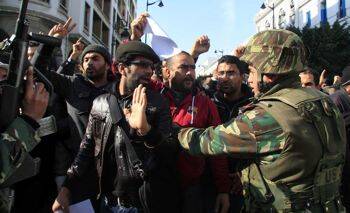Tunisia's tiny Catholic community prays for the country's transition to democracy and hopes that the nation will embrace full religious freedom, said Archbishop Maroun Lahham of Tunis. "We are certainly for the separation of 'mosque and state,' but we say clearly that a healthy democratic society must have as its foundation values that, whatever anyone says, have a religious root: freedom, respect, peace, equality, the preferential option for the poor, solidarity," the archbishop said. The archbishop wrote a pastoral letter on the attitude that Tunisia's 22,000 Catholics—all of whom are foreigners—should have toward the North African country's political and social changes. Tunisia's authoritative government was overthrown in January and a process of democratization began. For Christians, Archbishop Lahham said, the first wish "is to see the country finally arrive at a democratic regime. It is clear that a revolution is one thing, and a successful democratic transition is another." As part of a religious community that makes up less than 1 percent of Tunisia's population and is composed of noncitizens, Catholics in the country are called to be prayerful, supportive and humble witnesses of how God's spirit is at work, he said. "The vocation of the church is to love the world as God loves it, to see the world as God sees it," he said.
Bishops Calls for Support of Democracy Movement
Show Comments (
)
Comments are automatically closed two weeks after an article's initial publication. See our comments policy for more.
The latest from america
Do the social networks that Catholic influencers are forming online reflect the values of the Gospel or those of the platform?
Whenever I teach a seminar on T. S. Eliot’s work, I spend the first day of class on ‘Marina.’
The figures represent a huge increase in abortion within a decade, since in 2012 abortion ended 20.84% of conceptions—a fifth of all pregnancies.
Serving life by caring for others is “the supreme law” that comes before all of society’s rules, Pope Leo XIV said in his first Angelus address at the papal summer residence.








